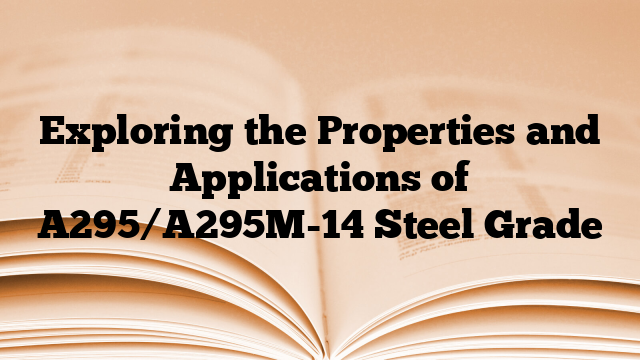Exploring the Properties and Applications of A295/A295M-14 Steel Grade
The A295/A295M-14 steel grade is a specification provided by the ASTM International for high-carbon bearing-quality steel. This steel grade is commonly used in various applications where high strength and wear resistance are crucial.
Chemical Composition:
The chemical composition of A295/A295M-14 steel grade includes elements such as carbon, manganese, phosphorus, sulfur, silicon, chromium, and molybdenum. The specific composition requirements may vary depending on the product form, such as bars, tubes, or forgings.
Mechanical Properties:
A295/A295M-14 steel grade exhibits excellent mechanical properties, making it suitable for demanding applications. These properties can be enhanced through heat treatment processes like quenching and tempering. The typical mechanical properties of this steel grade include high tensile strength, good hardness, and excellent toughness.
Standard number:
The A295/A295M-14 steel grade corresponds to the ASTM A295/A295M standard, which provides the requirements and test methods for high-carbon anti-friction bearing steel. This standard ensures the quality and consistency of the steel grade for its intended applications.
Applications:
The A295/A295M-14 steel grade finds its applications in various industries, primarily in the manufacturing of bearings, bushings, and other components that require high load-bearing capacity and wear resistance. This steel grade is commonly used in automotive, aerospace, industrial machinery, and power transmission applications.
In conclusion, the A295/A295M-14 steel grade offers excellent properties and is widely used in industries where high strength, wear resistance, and load-bearing capacity are required. Its chemical composition, mechanical properties, and adherence to the ASTM A295/A295M standard ensure its suitability for diverse applications.

